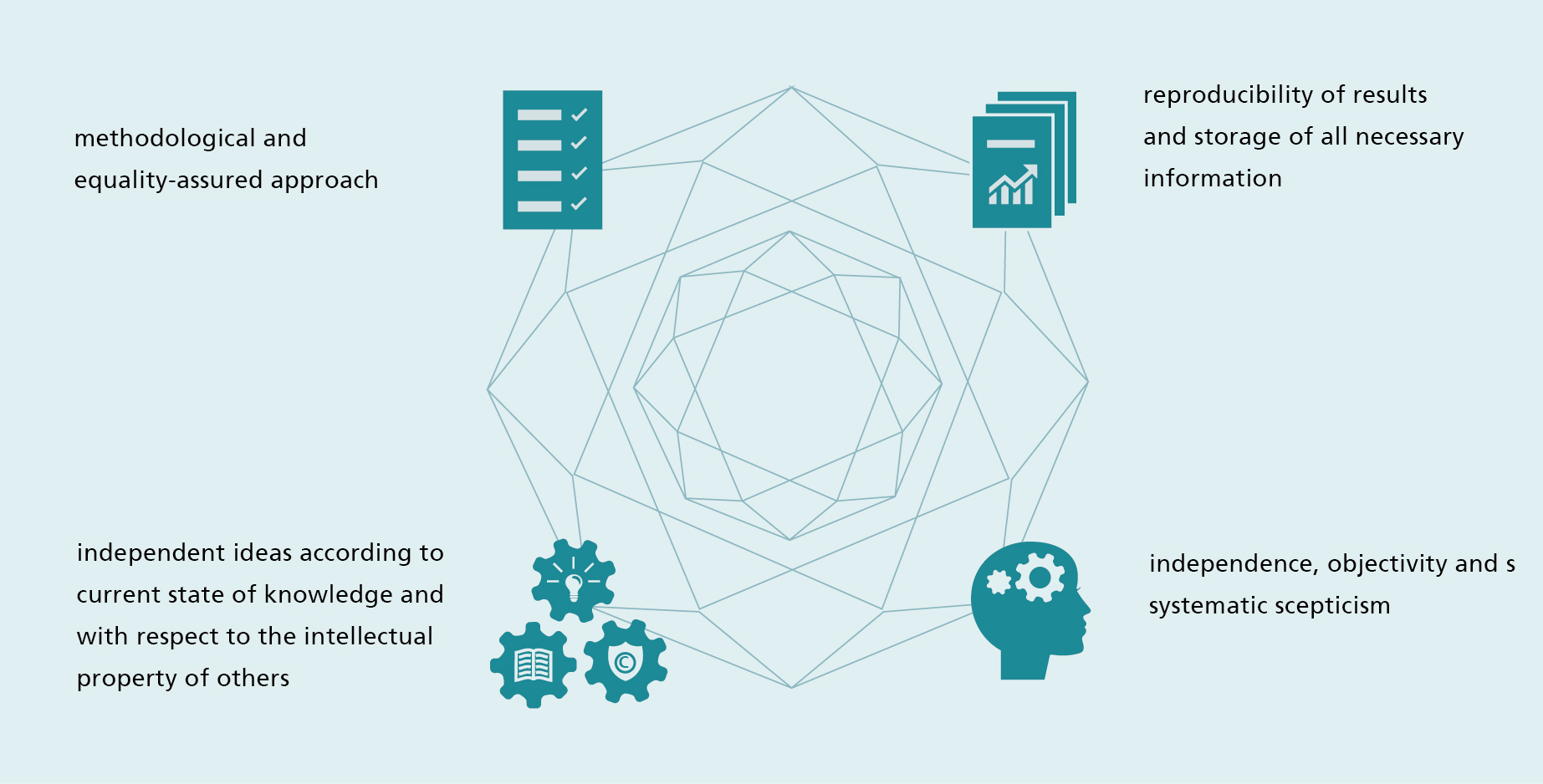Fraunhofer Institute for Systems and Innovation Research ISI offers scientists challenging tasks with responsibilities and scope for creativity. They work in interdisciplinary teams in the field of tension of technology, industry and society on interesting projects with national and international clients.
Scientific integriety is an indispensible prerequisite for this work. It describes basic ethical standards and the scientists‘responsibility for the honesty and qualiy of their work. This includes the regard for the principles of good scientific practice. For the Fraunhofer-Gesellschaft as an organisation for applied research these principals are the basis of its self conception. They orient themselves towards the recommendations of the Committee “Self control in Science“ by the member institutions of the German Research Foundation as well as towards the “Recommendations for Scientific Integriety“ of the Research Council.
